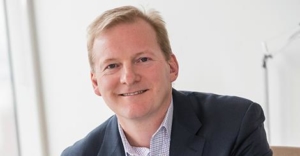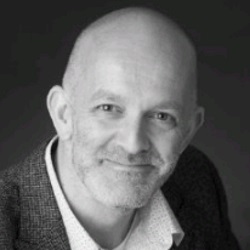Horse whispering, conducting a string quartet, and refining nutritional meals with top chefs sound like activities in a reality TV show. Or perhaps some courses at a community college. But in the context of London Business School and consulting firm A.T. Kearney, they are pieces to a unique executive education program called Expanding Horizons.
In 2013, Stephen Parker took over as A.T. Kearney’s chief learning officer and global head of talent. He immediately began looking for ways to achieve A.T. Kearney’s company-wide mission to become the world’s most admired consulting firm. To be the most admired consulting firm, Parker thought, it would take having the most admired employees.
“It’s a simple equation,” Parker begins, “we have to be the most admired version of ourselves the majority of the time. We needed a way to give our partners the time to reflect on what it looks like to be best versions of themselves. How do they become the most admired version of themselves? What will they spend the majority of their time doing to be that version?”
CONFIDENCE AND SELF-AWARENESS THE DIFFERENCE
This looked like development of skills that are less prevalent in partners at top consulting firms.
“Our partners have always had impressive expertise, stamina, and knowledge,” explains Parker. “They have great interpersonal skills. But they didn’t all have the confidence in those skills and expertise. When you become a senior partner, having a lot of knowledge is the entry card and table stakes. What makes the difference is confidence. It is knowing you’ll figure it out and build a relationship with a client instead of being concerned about failure. We all start off with these relational skills on the playground but we lose them as a primacy when we don’t sharpen them.”
So Parker knew he needed a highly customized program, and he wanted to do it under the umbrella of a business school.
“We knew there were many great thinkers in business schools and we wanted to partner with them,” Parker says. “We believe it’s part of our DNA that we co-create solutions with clients and work with them. We like to stay in the room with them. We don’t go into the black box, create a solution and then present it to them. We want to go through messiness and we thought the learning solutions for our partners needed to be the same way.”
‘MANY SENIOR EXECUTIVES LOVE TO LEARN BUT THEY DON’T WANT TO BE TAUGHT’
Parker and his team looked at business schools around the world. They boiled it down to “three or four” final schools located in the U.S. and Europe. One school rose to the top.
“Many schools wanted us to just use the courses they already had established in executive education,” says Parker. “Many senior executives love to learn but they don’t want to be taught. As consultants, we’ve all used the case study method. We wanted a school willing to go beyond that narrow feel and customize and co-create with us. We also wanted a school with connections to an emerging market. London Business School fit all of those requirements.”
The result was the creation of the Expanding Horizons program. The program designed strictly for the about 250 senior partners at A.T. Kearney began with the first cohort of 25 in December of 2013. Each cohort spends 10 days at London Business School, experiments with what they learn for four or five months, and then spend six days at the LBS Mumbai campus for an “intensified” experience built on what they learned from the 10 days in London and a few months back on the job. Cohorts are comprised of senior partners from all over the world.
SEEKING A ‘WIDER PURPOSE FOR LIFE’
Peter Shepherd of LBS is serving as the program director and worked closely with A.T. Kearney to develop the program. “Our proposal was to develop the personal and social confidence of a partner,” Shepherd says. “We worked backwards from the business impact partners wanted to have. We looked at themes, attitudes, and behaviors they needed to adopt and then we designed a program to support those.”
Shepherd says three things had emerged. First, partners needed to build on their understanding, awareness, and confidence within themselves. Next, they really had to be able to relate successfully with other people. Lastly, partners are at a point when they are looking to develop their work, make impact, and have a “wider purpose for life.”
“We wanted to help them answer the more existential questions,” Shepherd explains. “Why am I doing this? What matters to me? But we also wanted to make it largely experiential with group interaction. We wanted to cover a diverse style of learning and processing information.”
THE HORSE WHISPERING BEGINS
Not all of the specific experiences were shared, but the ones that were, at surface level, seemed odd and disjointed. Courses titled Equine Affinity and Quatuor Annesci String Quartet are part of the 10-day session in London. According to Shepherd, a good visual of the course is 25 senior partners on the English countryside approaching horses and seeing how they react.
“Horses are prey animals rather than predators,” Shepherd explains. “They are highly attuned to other species and if they are a threat or an opportunity. They are basically in fight or flight, rest and digest, or explore modes. Many more messages go from their guts to brains rather than brains to guts.”
Similar programs are used in medical school to help physicians learn how to approach patients.
“Horses are quick to give feedback based on how they are approached,” Shepherd says. “If someone approaches them signaling feelings of doubts, confusion, and fear, the horse will walk away. If you are not sure you want the relationship, the horse won’t want it either. If you approach with confidence and have a clear signal of positive intent and wanting a relationship, the horse will stay close. Horses give candid feedback.”
Shepherd explains Equine Affinity is a great way for partners to learn what types of physical intentions they are giving off and how to be more attuned to those intentions when walking into meetings with clients.








Questions about this article? Email us or leave a comment below.